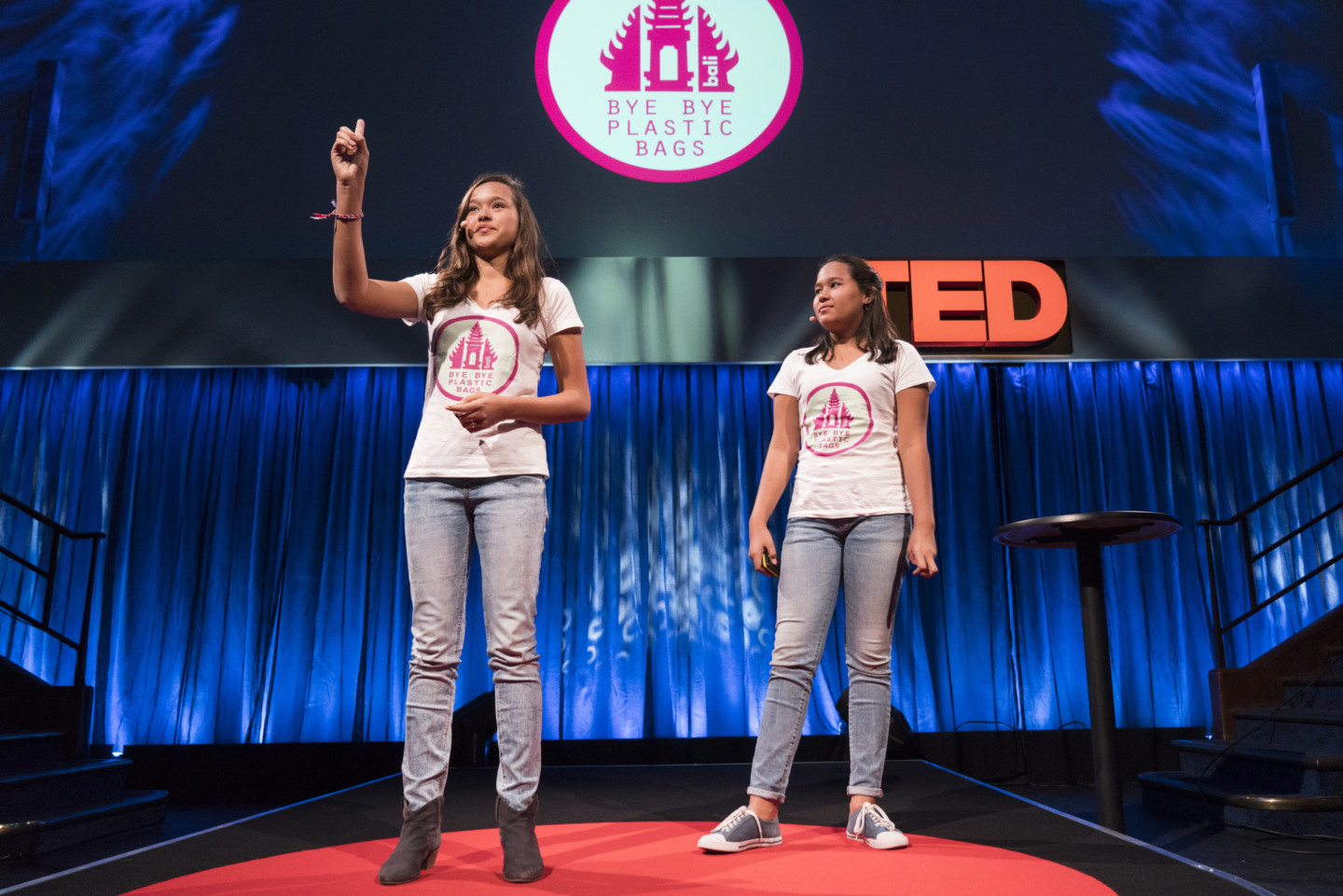Melati and Isabel Wijsen
Sisters and founders of Bye Bye Plastic Bags (BBPB) Melati and Isabel Wijsen started the NGO in 2013 to have plastic bags banned in Bali, Indonesia. The idea started with a lesson in causes at the Green School, where they learned about the positive changes created by leaders and individuals such as Mahatma Gandhi and Princess Diana. The sisters learned how the small gestures of one person can turn into huge global social and economic movements. Melati and Isabel chose garbage because that is what most impacted their daily lives. As they would play in the rice fields or walk on the beach they saw plastic bags in the gutters and piling up in the rivers and on the side of the road.
Indonesia is the second largest plastic polluter in the world after China, accounting for 10 per cent of global marine plastic pollution. The Indonesian government has pledged to invest USD 1 billion in reducing marine waste by 70% by 2025, as part of the UN's Clean Seas program. Due to the massive amounts of trash in the waters, when the wet season arrives and the winds turn, beaches on Bali are hit by the annual "trash season."
This used to be different. Traditionally, Balinese people only used organic materials leaving no waste behind. But today the resort island is flooded with trash. Warungs (small restaurants) serve soft drink in plastic bags to save people the hassle of returning empty bottles. Even canang sari, the daily offerings Balinese Hindus place in temples or small shrines in houses to thank the Sang Hyang Widhi Wasa, often contain plastic wrapped sweets. Much of the trash in Bali is not collected,some of it is burnt and some is dumped in rivers. The equivalent of a 14-storey building worth of plastic garbage is produced on a daily basis (680 cubic meters), and less than five percent of its plastic bags get recycled.
The Wijsen sisters decided they wanted to do something about it and started an Avaaz petition to get the local government to pay attention in 2014 and collected over 77,000 signatures online and another 10,000 signatures were collected through in-person campaigning at the Bali airport. Bali's governor Mangku Pastika, however, remained unimpressed and for over a year-and-a-half failed to meet Melati and Isabel's request for a hearing. out of frustration they decided to start a hunger strike, a decision inspired by trip to India and a visit to Mahatma Ghandi's house. Due to their young age, they performed the strike under the supervision of a dietician and only from sunrise to sunset. It proved to be effective and twenty four hours later they were escorted by the police to the governor, who signed a memorandum of understanding to help the people of Bali say no to plastic bags by January 2018. Pastika put them in touch with staff from the environment department and they regularly meet with the government now.
In 2016 Melati and Isabel held a TED talk in London where their talk on youth empowerment had over one million views. In 2017 on World Oceans Day they were invited to speak at the United Nations in New York
They realized early on that education is an integral part of creating the change they want to achieve so they made the local village of Pererenan their pilot village and created a program that can be implemented in other villages and communities. So far they have achieved that the amount of plastic has been decreased by 60% already. BBPB has also created a 25-page book by young people aimed at elementary school students to understand the importance of action now and how they can be an important part of changing their environment and making a better future. It is in Bahasa Indonesia and BBPB is working with the government to make it a part of the curriculum in schools. Other actions done by BBPB is teaching people how to make their own reusable bags, raise awareness and beach cleanups (the last one was Bali´s biggest beach clean up last February 20 in which 40 tons of trash was collected).
The youth is the future and it is important that there are people like Melati and Isabel Wijsen. Erik Sholheim, head of UN Environment: "The Wijsen sisters are living proof of why young people are so important to the planet’s future. We of the older generation have been staring at the same problems for decades, and it’s too easy for us to lose our ambition or get stuck in the same tired approaches. Our best hope for tackling the planet’s many challenges is to invest in you, the younger generation." And Melati Wijsen couldn't agree more: "We are the future, but we are here now, and we're ready. We've learned kids can do things. We can make things happen."
Sources:


